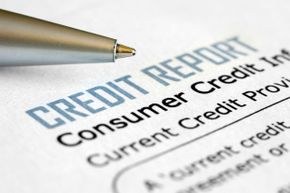The down payment, which is the money you pay up front for your home, can vary from 0 to 20 percent or more depending on the loan type and your credit rating. Do your research and talk to lenders in your area about how much you will have to put down.
Credit unions and several government-backed programs -- including the Veterans Administration (VA) and the Federal Housing Administration (FAH) -- offer low-down-payment loans. Most conventional loans -- not government sponsored -- require more down.
Many first-time homebuyers have trouble saving enough for the down payment. The lucky ones have family who will give them money to help with it. Before you get too excited, talk the gift over with your lender, who will want to be sure the money is in fact an outright gift and not a loan dressed up like a gift.
Lenders check your bank statements, credit history, pay stubs and income tax returns before they decide to loan you money. If you have a large sum suddenly appear in an account, they are going to want to know where you got it. If it is a gift with no strings attached, you may be asked to provide a gift letter from the giver, with the name, date of gift and statement that it is a gift with no repayment expected [source: Brackel].










